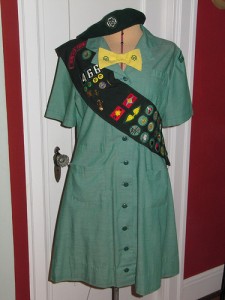My pregnant daughter glowed when she recounted the experience of watching her child’s heart beat for the first time. It happened at a clinic in her university town during an ultrasound test, completely taking her by surprise. At 6 weeks along, she’d expected to see only a tiny, dark spot on the screen, so when the tech pointed out a miniature beating heart, she was stunned.
Birgitta could see it clearly, though her baby was only 1/4“ long with a heart the size of a poppy seed. But never mind it’s miniscule size. Her emotional heart began beating for that little heart right then, and I can tell her from mothering experience it will beat like that until one or the other of them dies.
Research tells us a baby’s heartbeat begins just 21 days after conception. Considering the average baby needs about 280 days of development before it’s ready to be born, this information is mind-boggling. Something else astonishing about a pregnancy is that 2 beating hearts are enclosed in one person’s body. In the case of multiples, there are more.
Birgitta said that at her second ultrasound (at 12 weeks), the doctor began listening for her baby’s beating heart but first heard Birgitta’s. Its regular 60-something beats per minute represented a heart that had been working since poppy seed size within Birgitta, who had been within me, 22 years ago. Since that time it hasn’t shut down for even a few seconds and will probably beat millions of additional times in her future.
As the tech moved her wand across Birgitta’s tummy, gradually her own heartbeat faded and a different beat was heard, strong and steady like the first one but at a pace of 150-something beats per minute. Though small, it was already being faithful to its purpose.
We’ve all heard the expression, “two hearts beating as one,” used in reference to the bond of marriage or a close friendship. The 2 hearts beating inside Birgitta are in as close proximity as any two can be, literally inches apart, yet they’re distinctly separate. They’re definitely not beating as one. And though they’ll always be mother and child, they’ll remain two very different people throughout life.
The Bible has a great deal to say about hearts, the most significant of which is the heart of God. What we learn is that he knows the secrets in our hearts, but regardless of what’s hiding there, he also knows we have a strong longing for him. He put it there when he made us in his image, and when we move to satisfy that longing, he is pleased.
In other words, our hearts beat for him, and his heart beats for us. If there was ever a golden opportunity to hope two hearts might beat as one, this would be it.
“The Lord searches every heart and understands every desire and every thought. If you seek him, he will be found by you.” (1 Chronicles 28:9)





